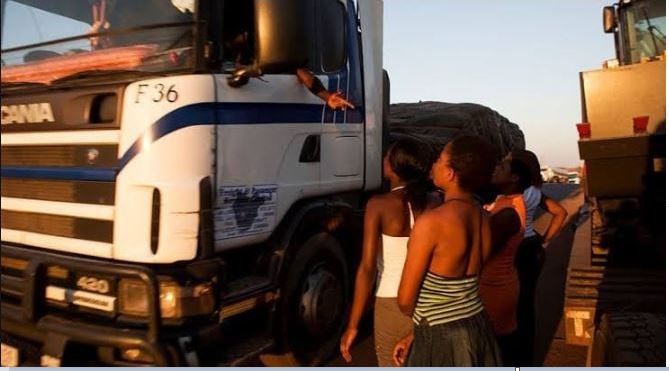The cargo trucks that have formed lengthy queues in Elegu town council, Amuru district are facilitating illicit commercial sex trade in the area.
As a safeguard to curb the spread of the coronavirus disease (COVID-19) pandemic, all lodges in Elegu town were closed in March. But Kassim Akule, the LCI chairperson of Lorikwor West village in Elegu explains that now, the illicit business is being transacted in trucks as hundreds of cargo drivers spend between two to four days seeking clearance.
Sources in the area reveal that currently, sex sells like hot cake and since the drivers no longer have to incur costs for lodges and hotels, the rate at which they are bonking Yoyo vendors has doubled in the past few months, and the cost has also slightly increased since there is no more lodge costs.
“It is common to see sex workers lining up outside trucks as drivers scramble to choose their favourite, when a driver is done with one, he sends her out of the truck and chooses another to satisfy his raging lust,” a source who preferred anonymity told our reporter there.
Amuru district chairperson Michael Lakony says that some of the truck drivers meet with the sex workers in rented grass thatched huts while others prefer to use their trucks as lodges making it hard to enforce presidential directives.
The slow-paced COVID-19 testing process has led to pileups of cargo trucks, at times stretching over 60kms at Uganda’s points of entry in Elegu, Malaba, Busia and Mutukula.
The district Woman MP Lucy Akello, asserted that district leaders backed by security are finding it extremely difficult to regulate the illicit sex trade but said the authorities are liaising with relevant development partners to conduct intensive counselling among the sex workers.
Last week, the minister of Health Dr Jane Ruth Aceng rallied Amuru leaders to conduct comprehensive risk communication and community engagement to help mitigate the possible spread of the contagion.
Over 1,000 trucks carrying goods are cleared every day in Elegu, at the Uganda – South Sudan One Stop border post. But with truck drivers being identified as high-risk individuals, the area leaders are concerned that failure to control their contact with community members will increase cases of community infections of COVID-19.





















